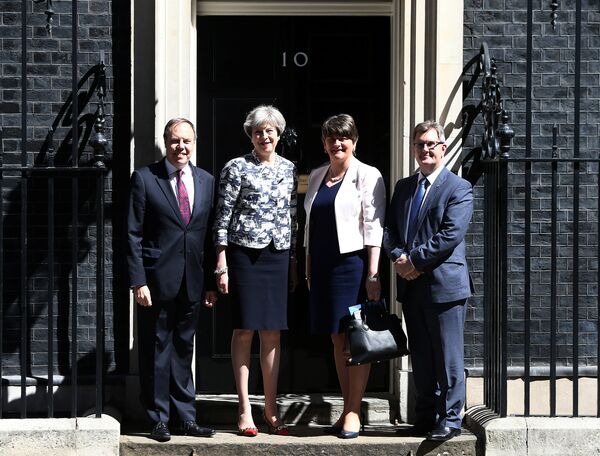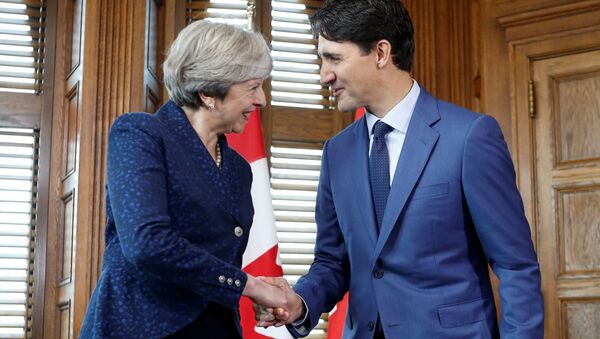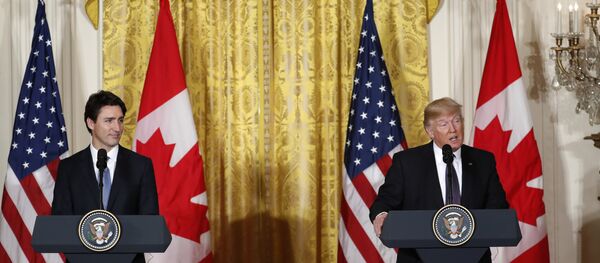The vulnerability of Theresa May's Conservative government to the wishes of the Democratic Unionist Party (DUP) has led to her siding with Canada and its leading aerospace exporter Bombardier, Northern Ireland's largest manufacturing employer, against Boeing in a trade dispute.
Since losing their majority in the June elections, the Conservatives have made major concessions to the DUP for infrastructure funding of up to £1 billion (US$1,4bn) for Northern Ireland, in exchange for their support in parliament, enabling the Tories to hold onto power.

The loss of support from the 10 DUP MPs in parliament, which puts the Conservatives just on the 326 seats necessary to prevent a collapse of the government, would immediately lead to a new general election.

One of the DUP's potential sticking points with the Conservatives is their support for a "soft Brexit" to protect jobs in Northern Ireland. From the prime minister's perspective, anything that threatens employment in Northern Ireland, threatens her whole government.
The May-Trudeau-Trump Axis
Canadian Prime Minister Justin Trudeau on Monday, September 18, insisted that his country will not do business with Boeing while the US company is trying to sue Bombardier, Canada's largest aerospace manufacturer.
His unusually strong rhetoric came amid Theresa May's visit to Canada, during which she reportedly committed to raising the issue in her meetings with US President Donald Trump.
Today on the Hill: Welcoming UK PM @Theresa_May to Canada!
— Justin Trudeau (@JustinTrudeau) September 18, 2017
🇨🇦🇬🇧 pic.twitter.com/bgNhMy36Hj
According to Boeing, Bombardier has benefited from unfair government subsidies, enabling it to sell aircraft to airlines within the US such as Delta.
Prime Minister Trudeau's additional threats to walk away from a Super-hornet fighter deal with Boeing if the dispute continues, together with May's hinting at possible curbs on procurement from the company may be seen to resemble Donald Trump's own "America First" economic platform.
The business press has warned about the potential return of nationalistically driven economic policies since at least the 2008 global financial crisis. The "Buy American, Hire American" formula, something that former US President Obama rejected, has become increasingly politically useful, even necessary in the US and other first-world economies.
Both Canada and the UK are keen to protect domestic employment and this common interest appears to have brought two relatively smaller economic powers together against the industry's largest manufacturer and the world's largest economy, the US.
For May, the continued activity of Bombardier in Northern Ireland may be tied not just to her government's survival, but that of her own political career as well.



